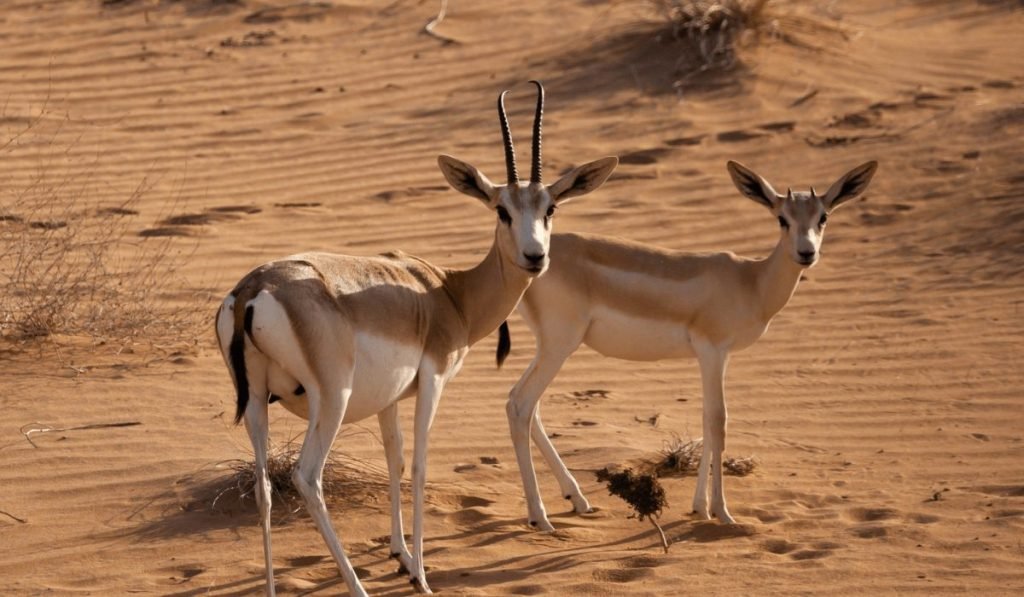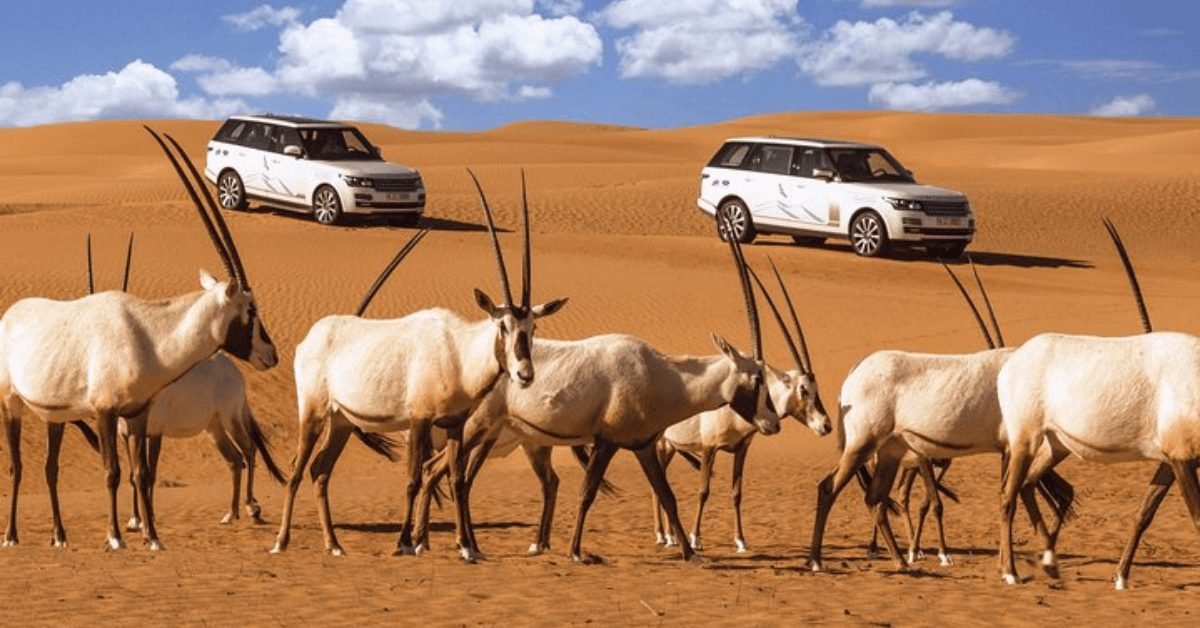Dubai, known for its towering skyscrapers, luxury resorts, and vibrant cityscape, is also home to a mesmerizing desert ecosystem. As the popularity of desert safaris continues to grow, it becomes crucial to understand how Dubai ensures the protection and preservation of its fragile desert environment. In this article, we will explore the various strategies employed by Dubai to safeguard its desert ecosystem during desert safaris, highlighting the importance of responsible tourism and sustainable practices. By adopting innovative approaches, enforcing regulations, and raising awareness, Dubai aims to strike a balance between tourism and the conservation of its unique desert biodiversity.
Understanding Dubai’s Desert Ecosystem

Dubai’s desert ecosystem is a remarkable natural treasure characterized by vast sand dunes, wadis (dry riverbeds), and a variety of plant and animal species adapted to harsh desert conditions. The ecosystem supports a delicate balance of life, including indigenous flora and fauna such as Arabian oryx, sand gazelles, and desert foxes. Understanding the significance and fragility of this ecosystem is crucial for devising effective conservation strategies.
Environmental Regulations and Policies
Dubai has implemented comprehensive environmental regulations and policies to ensure the protection of its desert ecosystem during desert safaris. The Emirate’s legal framework governs the operations of desert safari operators, establishing guidelines for responsible and sustainable tourism practices. Government agencies, such as the Dubai Municipality and the Environment Agency – Abu Dhabi, enforce these regulations to prevent activities that may harm the desert environment.
Sustainable Tourism Practices
Dubai recognizes the importance of sustainable tourism and encourages desert safari operators to adopt eco-friendly practices. Tour operators are increasingly incorporating sustainable measures into their operations, such as using low-impact vehicles, minimizing waste generation, and promoting responsible tourist behavior. By reducing the ecological footprint of desert safaris, Dubai aims to protect the desert ecosystem for future generations.
Conservation and Restoration Efforts
Dubai has made significant efforts to conserve and restore its desert ecosystem. The establishment of protected areas and nature reserves, such as the Dubai Desert Conservation Reserve, plays a crucial role in preserving the biodiversity and natural habitats within the desert. These protected areas serve as sanctuaries for native wildlife and allow for controlled access by tourists to minimize disturbances.
Additionally, Dubai is actively involved in rehabilitating and rewilding degraded desert areas. Through ecological restoration projects, efforts are made to restore native vegetation, promote the return of indigenous wildlife, and enhance the overall ecological resilience of the desert ecosystem. Such initiatives contribute to the long-term sustainability of desert safaris.
Education and Awareness Programs
Education and awareness play a pivotal role in ensuring the protection of Dubai’s desert ecosystem during desert safaris. The government, in collaboration with environmental organizations and tour operators, has implemented various educational initiatives. These programs aim to inform tourists and locals alike about the ecological significance of the desert, the importance of conservation, and the need for responsible tourist behavior. By fostering a sense of environmental stewardship, Dubai strives to create a knowledgeable and conscientious visitor base.
Responsible Tourist Behavior
Responsible behavior from tourists is crucial for minimizing negative impacts on the desert ecosystem during desert safaris. Tourists are encouraged to follow guidelines and regulations set by authorities, which include avoiding littering, respecting wildlife and their habitats, and refraining from activities that may harm the environment. By practicing responsible behavior, tourists can actively contribute to the conservation of Dubai’s desert ecosystem.
Technological Innovations
Technological innovations have played a significant role in minimizing the environmental impact of desert safaris in Dubai. Electric vehicles, for example, have gained popularity as an eco-friendly transportation option, reducing carbon emissions and noise pollution in the desert. Furthermore, advancements in waste management technologies have allowed for better waste segregation, recycling, and disposal practices, ensuring minimal ecological disruption during desert safari operations.
Collaboration and Partnerships
Dubai recognizes the importance of collaboration and partnerships between government entities, private sector stakeholders, and environmental organizations. Through joint efforts, these entities work together to develop and implement conservation strategies, share knowledge and expertise, and leverage resources effectively. Such collaborations ensure a holistic approach to protecting the desert ecosystem, creating a sustainable model for desert safaris.
Challenges and Future Outlook
Protecting Dubai’s desert ecosystem during desert safaris does not come without its challenges. Balancing the demands of tourism with conservation needs requires continuous evaluation and adaptation of strategies. Climate change, habitat fragmentation, and increasing visitor numbers pose future threats to the desert ecosystem. However, with ongoing efforts and a commitment to sustainability, Dubai aims to overcome these challenges and ensure the long-term preservation of its desert paradise.
Conclusion
Dubai’s commitment to preserving its desert ecosystem during desert safaris sets a commendable example for sustainable tourism practices worldwide. By implementing environmental regulations, adopting sustainable tourism practices, investing in conservation and restoration efforts, and raising awareness among tourists, Dubai ensures the protection of its fragile desert environment. As travelers explore the magnificent beauty of the desert, it is vital that they do so responsibly, with an understanding of the importance of safeguarding this unique ecosystem for generations to come.

